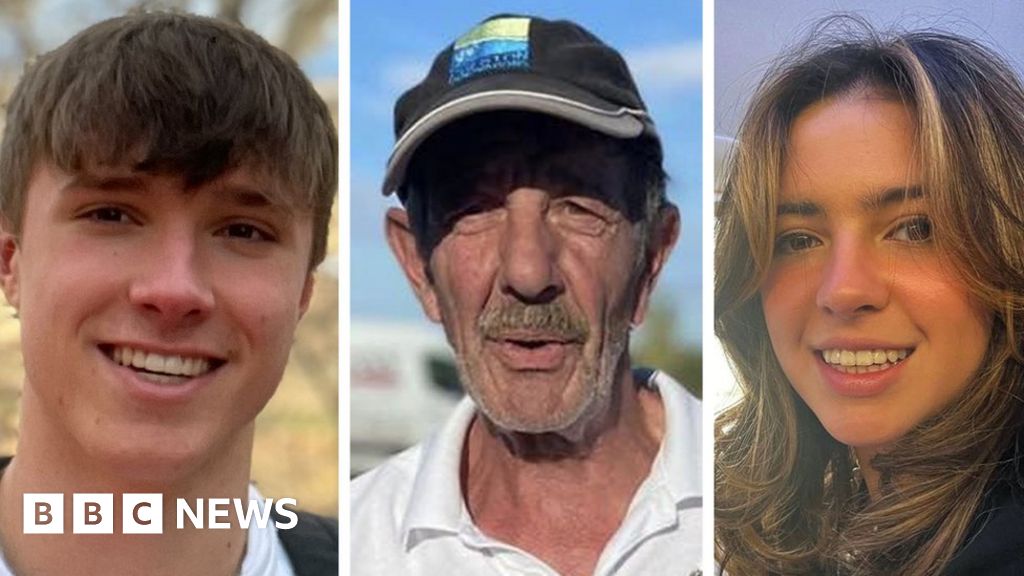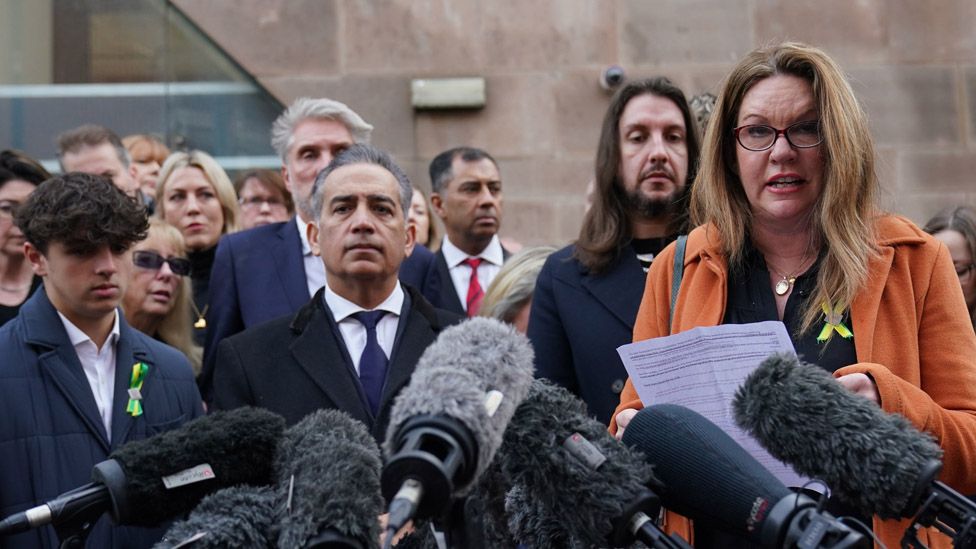This video can not be played
To play this video you need to enable JavaScript in your browser.
Prosecutors were right to accept manslaughter pleas from the Nottingham attacks killer but could have handled the case better, a review has found.
Barnaby Webber and Grace O’Malley-Kumar, both 19, and Ian Coates, 65, were stabbed to death on 13 June.
Valdo Calocane was given a hospital order in January for manslaughter on the basis of diminished responsibility.
The government has now been urged to review homicide laws in the wake of the case.
The victims’ families said they were “disappointed but not entirely surprised” with the report’s findings.
Emma Webber – mother of Mr Webber – said: “Until the law changes in this country, the diminished responsibility charge and plea means murderers will get away with murder.”

She added: “We have never disputed Calocane’s mental health problem, but what I would say at the moment in this country if you commit murder and you have mental health issues, then it is very unlikely you are going to be tried for murder.
“And it is abhorrent it could be downgraded to manslaughter, just because it is how the law is stated.”
Mr Coates’s son James said the families “can’t breathe until everything is done and dusted”.
“We can’t see when it’s going to finish,” he said. “It’s been made a lot easier by being able to support each other.”
Asked about his grievances with the charges, he said there was “no opportunity to disagree and push back, we felt we were told what was going to happen and we weren’t given an option”.
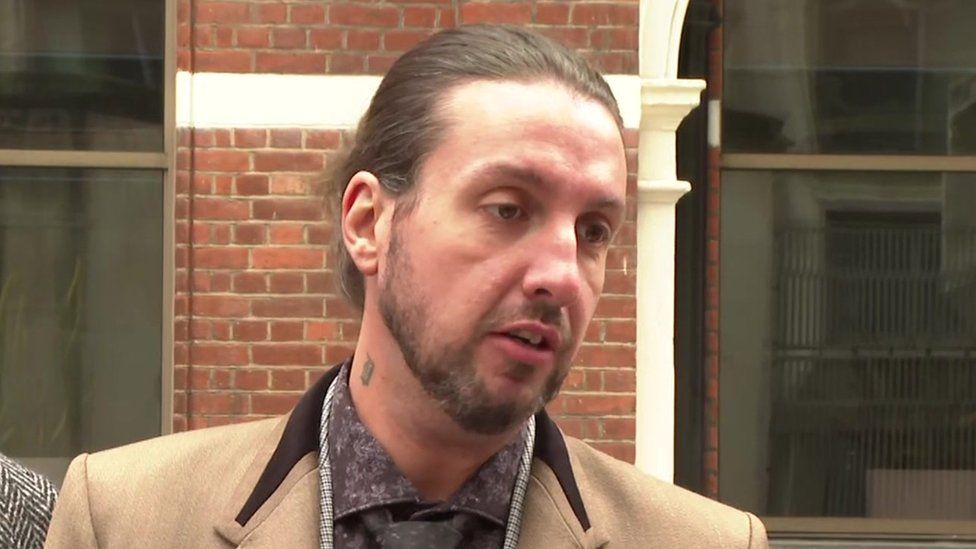
An inspection of the Crown Prosecution Service (CPS), prompted by a meeting between the victims’ families and Prime Minister Rishi Sunak, was completed by HM Crown Prosecution Service Inspectorate (HMCPSI).
The HMCPSI review found prosecutors complied with the law and met their obligations to the victims’ families, but found areas in which the families “could have been better supported”.
In particular, the report noted the families felt “unsupported and secondary to the whole process”, with the watchdog suggesting that greater clarity is needed about the role of victims in the criminal justice system.
It recommended the CPS undertake a review of all guidance relating to victims’ engagement to ensure its use of the terms “consult” or “consultation” are appropriate.
“There is no obligation on the CPS to ‘consult’ victims when making a decision on the evidential test of the Code for Crown Prosecutors, but rather to ‘inform’ and ‘explain’ their decision,” the report added.
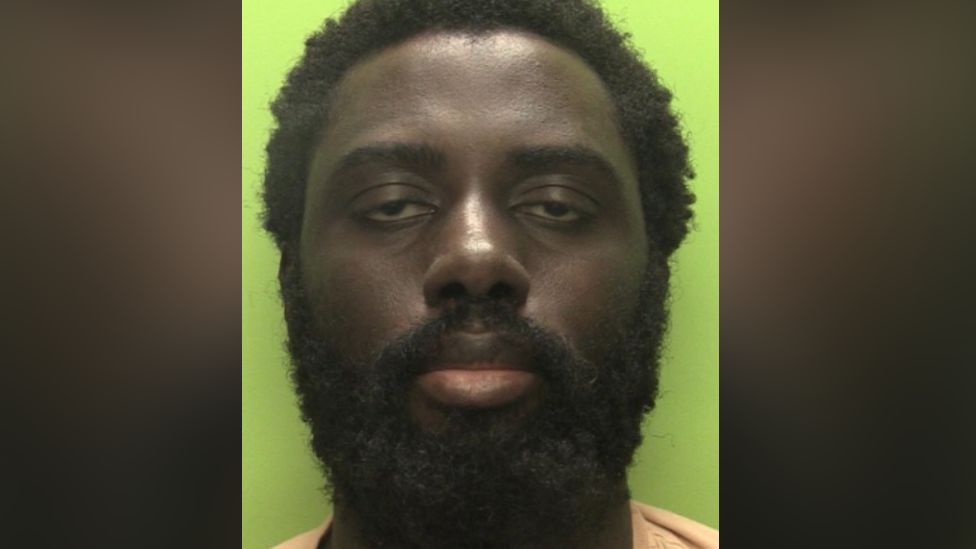
The report also called on the government to consider changing the categorisation of homicide into three tiers – first degree murder, second degree murder and manslaughter – as recommended by the Law Commission nearly 20 years ago.
It is currently categorised into two tiers – namely murder and manslaughter.
Following the review, the CPS’s director of public prosecutions Stephen Parkinson said: “In tragic and complex circumstances such as these, the CPS has difficult decisions to make, but must always act with independence and professionalism.
“I believe that our team did so in this case, and with considerable dedication and commitment.
“I am grateful to the Inspectorate for the care and thoroughness with which they have reviewed our actions. We will carefully consider the report’s findings.”
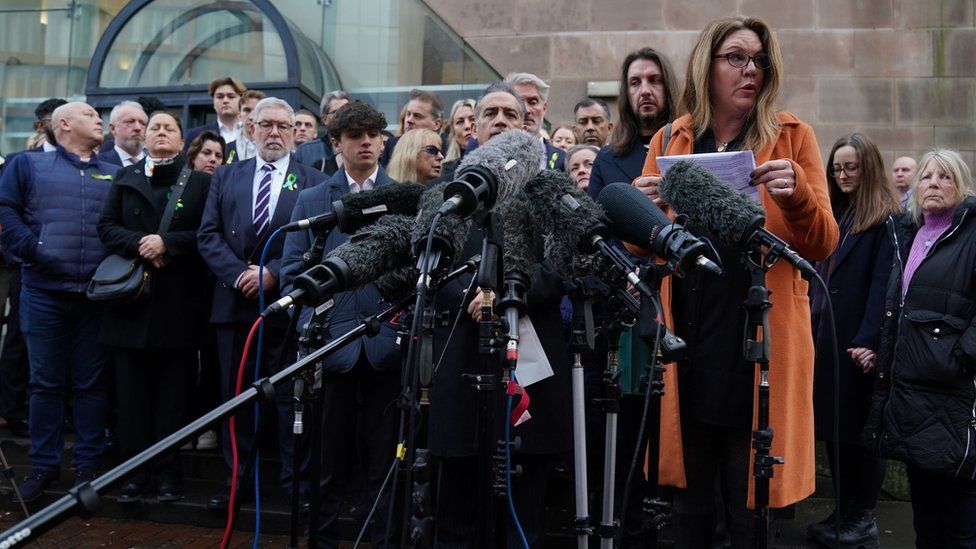
Mr Webber and Ms O’Malley-Kumar were stabbed to death in Ilkeston Road, before Mr Coates was found dead with knife injuries in Magdala Road after his van was stolen.
The stolen van was then used by Calocane to drive into pedestrians Wayne Birkett, Marcin Gawronski and Sharon Miller in the city centre, with all three left with serious injuries.
Calocane, 32, who a court heard was suffering from paranoid schizophrenia at the time of the killings, admitted manslaughter and three counts of attempted murder on 28 November.
On 23 January, the CPS announced it had accepted the pleas, on the basis of diminished responsibility, with Calocane sentenced two days later.
‘Unusual step’
At the time, the CPS said medical experts provided “overwhelming” evidence Calocane was suffering from a serious mental health condition, including hearing voices in his head telling him his family would be harmed unless he did what they told him to do.
Three psychiatrists were asked to analyse Calocane’s condition and all agreed it “impaired his ability to exercise self-control”.
The CPS “took the unusual step” of asking a fourth expert to review those reports, and after they agreed with the findings, prosecutors concluded there was “no realistic prospect of conviction for murder”.
Following the sentencing, Mr Webber’s mother said the CPS had, in November, presented her family with “a fait accompli that the decision had been made to accept manslaughter charges”.
“At no point during the previous five and a half months were we given any indication that this could conclude in anything other than murder,” she said.
In response, a CPS spokesperson said it had met the families of Mr Webber and Ms O’Malley-Kumar online, and then again in person in December, with further offers to meet made “throughout”.

How central should victims be in the justice system?

Since 2002, when the Labour government said it intended to “place the victim at the heart of the criminal process”, far greater emphasis has been put on ensuring victims are supported, informed and respected.
But, historically, the law in England and Wales does not allow individual victims to influence the actions of the courts.
Prosecutions are conducted on behalf of the Crown, not the victim, with a focus on objective testing of evidence, rather than emotion.
The inspectorate said today that “the narrative of putting victims at the heart of the criminal justice system is leading to false expectations”.
It recommends the CPS reviews its guidance on engaging with victims and notes the Victims and Prisoners Bill going through Parliament might offer an opportunity for greater clarity.

Follow BBC East Midlands on Facebook, on X, or on Instagram. Send your story ideas to eastmidsnews@bbc.co.uk or via WhatsApp on 0808 100 2210.
Related Topics
-
-
20 February

-
